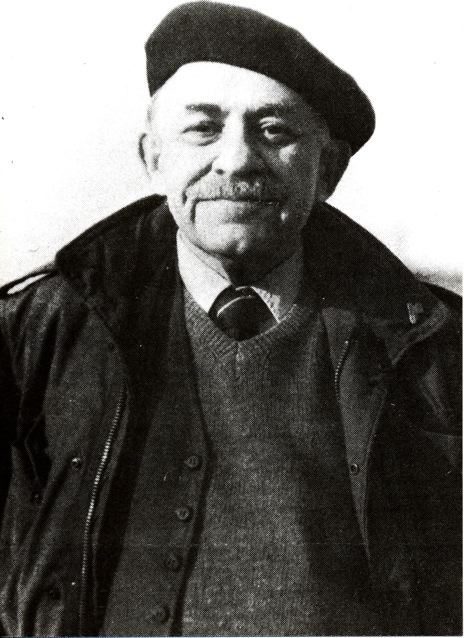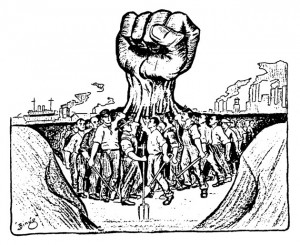“The notion that man must dominate nature emerges directly from the domination of man by man… But it was not until organic community relations… dissolved into market relationships that the planet itself was reduced to a resource for exploitation. This centuries-long tendency finds its most exacerbating development in modern capitalism. Owing to its inherently competitive nature, bourgeois society not only pits humans against each other, it also pits the mass of humanity against the natural world.” Murray Bookchin
Defining social ecology
 Social ecology is a critique of anti-ecological practices and beliefs; it also critiques our current social and Political ideas, and strives to create a communitarian, ethical and ecological approach to society and life on earth in general.
Social ecology is a critique of anti-ecological practices and beliefs; it also critiques our current social and Political ideas, and strives to create a communitarian, ethical and ecological approach to society and life on earth in general.
Social ecology advocates a reconstructive and transformative outlook on social and environmental issues, and promotes a directly democratic, confederal politics. As a body of ideas, social ecology envisions a moral economy that moves beyond scarcity and hierarchy, toward a world that re-harmonizes human communities with the natural world, while celebrating diversity, creativity and freedom.
Social ecology tells us that the present ecological crisis that we face is caused by deep rooted social problems, such as hierarchical organization of power & the authoritarian mentality that are rooted in the structures of our society.For Murray Bookchin who developed the idea of social ecology in the 1960s, the major contributory factor in the deep rooted social problems lies with the dominance of hierarchy and the relationships that form and develop from this hierarchy. For Bookchin, the dominance of man over nature comes from the fact that men dominate other men through Social class, caste etc, which perpetuates hierarchy whilst at the same time creating social problems. For Social ecologists, racism, sexism, and third world exploitation are a product of the same mechanisms that cause rainforest devastation, however ecology tells us that nature can provide us with ethical principles, for example
“A flourishing eco-system maximizes diversity and interaction and minimises hierarchy and domination. The good of the whole is archived through rich individuality and complex interrelationship of the parts” John Clark sstates in his book Reviewing the Earth
Bookchin’s social ecology changed the way the some environmentalist perceived the whole idea of ecological degradation, for example an environmentalist who is thinking purely in terms of the outputs in an ecological crisis, such as the damage or pollution of a certain area, Bookchin takes things many steps further than just looking at the negative output, for Bookchin this pollution or damage has occurred because of the hierarchical belief in man over nature and the exploitative mechanisms adherent in Capitalism.
The present situation
Within Modern Capitalist societies Nature is therefore seen as something to be controlled and used when ever we see fit to take from her. It goes without saying that in any relationship where something or somebody is being controlled and dominated purely for the use of whatever they might have that is useful that there is no ethical consideration or relationship beyond that which makes up the usury relationship. This has led to the wholesale destruction of Forests, Lakes, highlands and lowlands, and any other natural terrain that you can think of, for the capitalist it is their control over resources, and the profit from these resources that are their only concern.Capitalism and the domination of nature is leading us to peaks in resources, degradation of the natural world, and slavery for those who are forced to work within this relationship.
The alternative: a permanent culture
 The Social ecology alternative to the capitalist individualist way of thinking is to have a society based on ecological principles; an organic unity in diversity as we see in nature that is free of hierarchy & based on mutual respect for the interrelationship of all aspects of life of life on planet.
The Social ecology alternative to the capitalist individualist way of thinking is to have a society based on ecological principles; an organic unity in diversity as we see in nature that is free of hierarchy & based on mutual respect for the interrelationship of all aspects of life of life on planet.
Social ecology is perhaps the greatest modern philosophical and political challenge to Neoliberal thought and Capitalist economics since the days of Karl Marx, as it questions the central ideas of hierarchy and the usury view of nature within a contemporary context set against a background of a peak in different valuable and precious resources that are used to power Civilization. There is one problematic area of Bookchin’s thought within the contemporary situation, and this is concerning world population, for Bookchin the over population of the planet is a myth generated by people like Thomas Malthus, however, the reality of Peak oil, and the peaks in other resources which have enabled huge growth in populations and created food security through the use of Petroleum to feed our growing populations is something that cannot be overlooked, petroleum is used in every step of our industrialized food production, if oil were to dry up relatively quickly without in contingency plans to replace its usage as we have seen in Cuba after the Soviet Union cut off its oil supply, there is no doubt that many millions of people would starve.
Bookchin was right to be critical of people like Thomas Malthus who advocated eugenics as a means of reducing the planets population. But issues of world population and dwindling resources aside, Bookchin’s social ecology is central to the development of a permanent culture because it addresses a multitude of interlinked inequalities and has within its mechanisms and ideas the seed to alter how we think about nature, and ourselves, and for the development of a Permanent culture, a new relationship between ourselves and nature is something that is essential if we are to bring about a social and ecologically just future.
